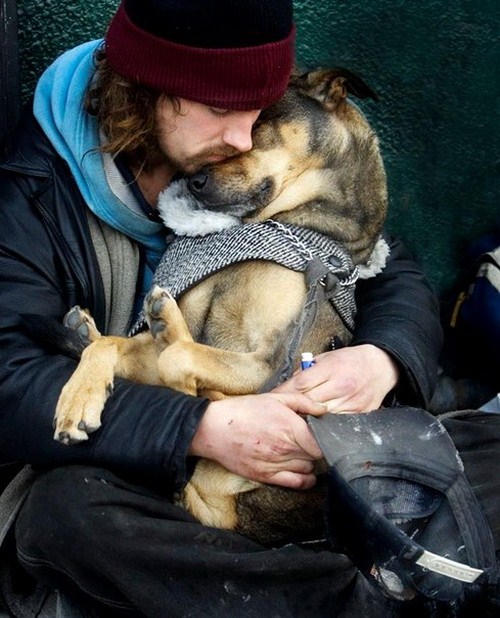 September 10 is World Suicide Prevention Day where we focus our attention and energies on the rampant global epidemic of suicide and consider ways to end this pernicious, deep sorrow.
September 10 is World Suicide Prevention Day where we focus our attention and energies on the rampant global epidemic of suicide and consider ways to end this pernicious, deep sorrow.
From my research, I would say everyone has been impacted by suicide. Be it their own abstract thoughts, a school rocked with grief at a student’s suicide, the loss of a loved one, the sudden death of a coworker or hearing about the friend of a friend. Alas, suicide is everywhere and touches every aspect of society.
It feels fitting that today I share with you once again 13 Everyday Ways to Help Prevent Suicide. Please never estimate the power of one to make a difference.
What can we do to help?
Here are 13 small steps that we can all take to help tip the balance in favor of life. We never know the impact we make on one another:
- Be neighborly.
Reach out to decrease loneliness and isolation. I love the story of the woman who would occasionally leave freshly baked pies for her very lonely, dismissive and cantankerous neighbor. After almost 16 months, the wall finally came down and a connection was made.
- Become the anti-bully.
Become tolerant of others. Don’t punish differences. Be it hair color, body size, sexual preferences, clothing choices, religion, culture, race, socioeconomic status, level of education, kind of work, appearance or any other something that is different from you, learn to accept.
Making someone feel small, belittled and terrified does not serve any of us. And that kind of terror begets terror. Let’s stop the cycle and increase the cognitive dissonance around bullying.
- Seek help.
Check out your local resources and find help for your depression, addiction, run-away anxiety, PTSD and other mental health concerns. You don’t have to do it alone. There’s no shame in getting help. Ever. We all need a helping hand from time to time.
- Be kind.
Give others the benefit of the doubt. Lend a helping hand. Proffer a smile. Or simple be present and acknowledge. Kindness is never wasted. It positively shifts energies and impacts the neuroplasticity of our brains. Not only does kindness makes us feel good, it’s good prophylactic medicine.
- Be proactive.
Write a check, volunteer or take steps to help those of in need of a job, a bed, a meal or how to read a book. Advocate for mental health resources. Support our veterans. Every little bit does count.
- Work on your emotional intelligence (EQ).
Fluency in expressing our feelings in a direct, non-threatening way we can make a huge difference in our personal interactions. It helps us feel connected and understood. After all, we are social beings.
- Make peace with yourself.
No more cursing at your inner demons. No more emotionally leaking or ranting and raving due to your unhealed childhood wounds. If needed, get help. And learn to accept – and, even, love – your very humanness.
- No more bad-mouthing.
Put an end to the snarky comments, gossiping and mean-spirited character attacks. Put judgment and criticism in the deep freeze. We never know someone’s situation, particular context or backstory. As the saying goes, everyone is struggling and fighting their own battles, a running, pejorative commentary of another only causes more pain.
- Develop your cultural IQ (CQ).
We all share one blue-green marble. Let’s respect our wealth of cultures and learn to understand one another. The more we learn, the greater are our experiences as we expand our respective comfort zones. Crickets may not be my go-to food, but I am happy you are enjoying your crunchy meal. There is room and space for each of us.
- Practice compassion.
Who needs judgment? Practice compassion. Compassion asks us to walk in one another’s shoes. Compassion asks us to treat others the way we would wish to be treated. Compassion asks us to lead from the heart.
- Practice Latitude.
Everyone has a bad day, a bad season or, even, a bad couple of years. Sometimes, we just need to let it go, let it slide and give the other person (or ourselves) a break. Sometimes, what we don’t say can be the greatest gift of all. Latitude allows us to take a breath and re-center.
In the behavioral sciences, we know that accentuating the positive goes much farther than harping on the negative. With discernment, you will know where to practice latitude.
- Talk and disempower the stigma of suicide.
Suicide is universal and global. It has been around since the earliest of times. Suicide has been tainted by taboo, shame and guilt. Don’t be afraid to talk about suicide. Bring it out in the open. Don’t be afraid to ask. The “S” word is far too prevalent for us to ignore its presence or to be in denial. Let’s have heart-to-heart conversations and put suicide in the light of day. No more secrets. No more hiding. Let’s talk. Let’s connect and change the paradigm.
- Be a power of example.
Our actions often speak louder than our words. Walk in your integrity, coherence and with an open heart. Share some of your light. It can help ease the darkness.
Thank you for your open, caring heart.
And please share if you find this of value. You can never underestimate the power of a suggestion. Many thanks.

